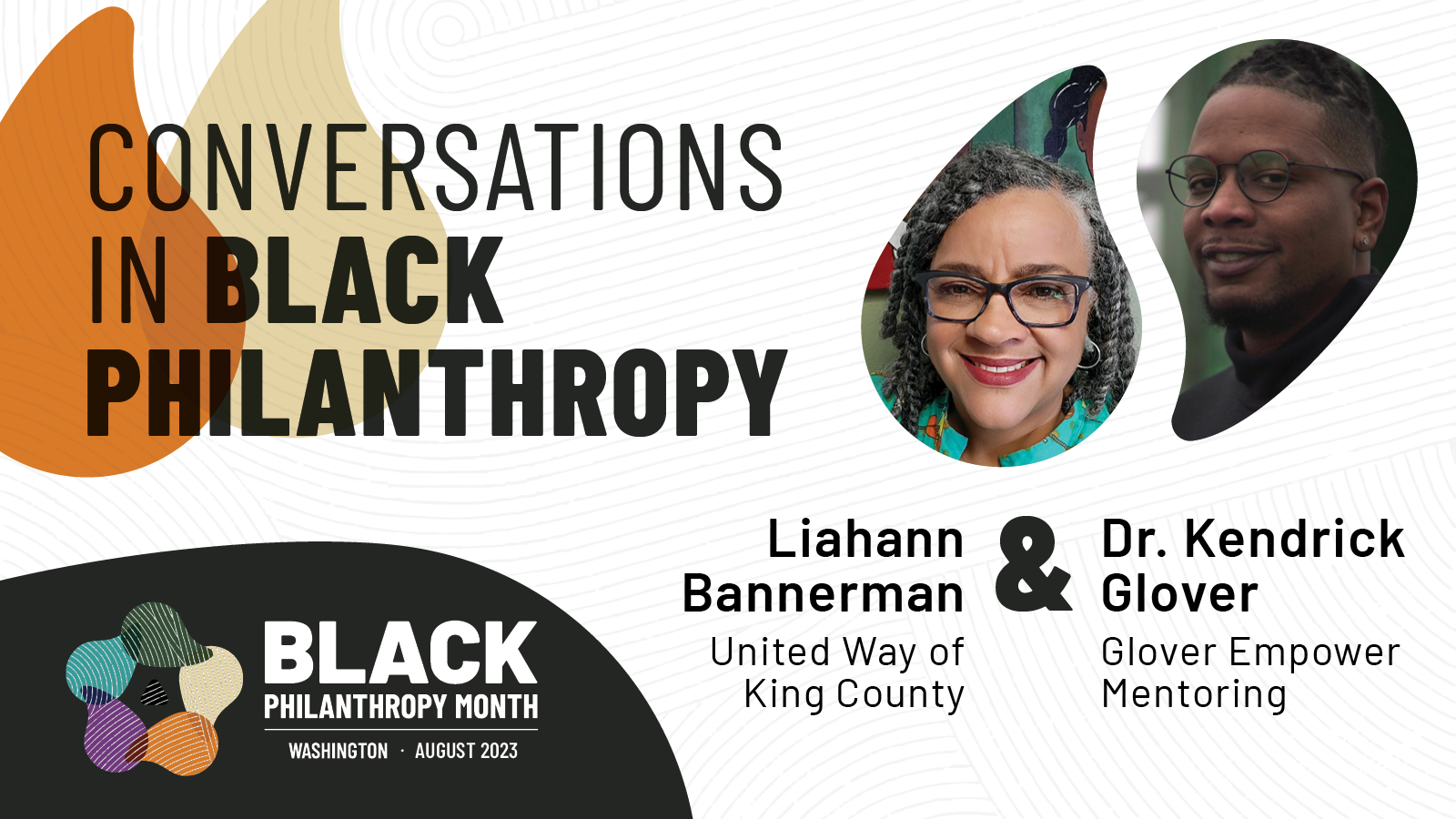Love in action in the Puget Sound: A conversation with Liahann Bannerman & Dr. Kendrick Glover
The theme for 2023’s Black Philanthropy Month is “Love in Action” an invitation to radically reimagine philanthropy through the lens of self-love, community love and the love of Black people.
To celebrate the deep roots of Black giving, we are featuring truthful conversations between Black grantees and Black funders. These conversations shed light on the relationships at the heart of philanthropy and showcase new ways of giving.
Funder to Grantee:
Liahann: What do you feel is often misunderstood about the relationship between funder and grantee?
Dr. Kendrick: I think the entire relationship is misunderstood. When we’re talking about relationships, we need to go beyond a financial transaction and a few check-in calls. We are talking about ongoing conversations with people who don’t look at this as just a job, or a line item, but who really understand and share our passion and see their work as part of community work.
Not everyone can be “boots on the ground,” but what has been so successful in our relationship with United Way is them empowering us to reach back into our communities and lift folks up in ways we wouldn’t have the capacity or funding to do otherwise.
Liahann: How can we as funders better support our grantees beyond financial investments?
Dr. Kendrick: The number one way funders can support grantees is through their financial investments, because we need those finances to continue to do the work.
But United Way goes above and beyond in the way they hold community gatherings and facilitate conversations with multiple organizations. They consistently bring us to the table as thought partners, and have proven through their deep commitment to community engagement that they are not just leading with their pockets, but also leading with their hearts, their minds, and their feet.
Liahann: What has been the most empowering aspect of the relationship between United Way of King County and GEM?
Dr. Kendrick: Personally, I’m a huge fan of our retreats. They are really in depth and people make a genuine effort to get to know one another. Obviously, United Way can give us the money and we can go out and do the work, but when we get together and we hear the stories and share our stories of what everybody is doing, it's empowering and uplifting.
—
Grantee to Funder:
Dr. Kendrick: How does Black philanthropy differ from traditional philanthropic models?
Liahann: In some ways it's hard to say because there isn’t just one way that Black philanthropy is happening. However, I think that community selflessness is a defining factor.
I think back to the very first year we were giving grants through the Black Community Building Collective - a participatory funding approach. We had $1.5 million and one of the grantees in the cohort reminded us to think about whether we wanted to fund equitably or equally. We easily could have just split the money between the grantees, but at the behest of our members we decided to prioritize Black women-led organizations. As a result some organizations opted to not take money that year because the needs of others were greater.
In the Collective model, we are working to avoid the competitiveness inherent in mainstream philanthropy . We are dismantling that and thinking instead about where the greatest need is, and knowing that in the future a different organization may have a need and the community will have their back too.
Dr. Kendrick: What ways are you attempting to influence your sector to increase investments in Black communities?
Liahann: We prioritize educating donors on how to do philanthropy differently. We focus on shifting the paradigm and instead of seeing organizations as vehicles to perform a specific task, we are acknowledging that they are really agents of holistic change in their communities.
They are never just dealing with the one thing, you, Dr. Kendrick, are not just dealing with mentoring. When other things come up in the Black community, people are coming to you and we have to understand that added labor. It’s labor that comes from love, and so it's our responsibility to step up and to educate other funders to ensure they are funding adequately to really get the job done.
—
GloverEmpowerMentoring (GEM)
GloverEmpowerMentoring-GEM is a leader in restorative justice practices that foster youth empowerment and divert them from criminal justice involvement into positive pathways of education, employment, and healthy relationships.
United Way of King County
United Way of King County is a 102-year-old anti-poverty organization that works side by side with communities to achieve an equitable future for everyone. We believe such a future is possible only when we work with, invest in and advocate for those historically marginalized and oppressed. One of those investments is the Black Community Building Collective - a group currently comprised of 14 Black-led organizations that build relationships, form strategies, and determine funding ($4.5 million to date).

